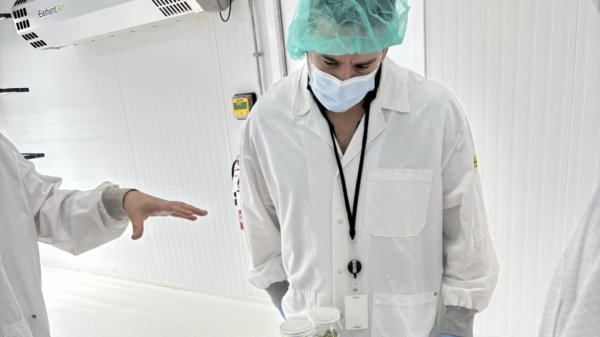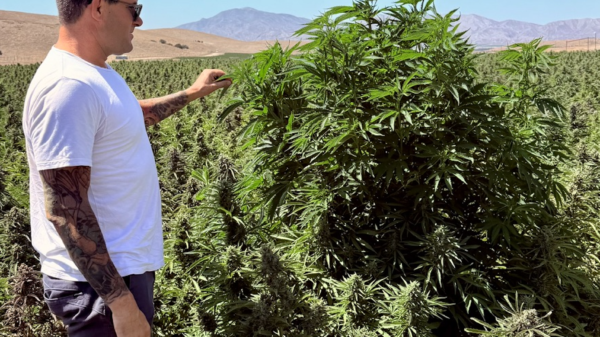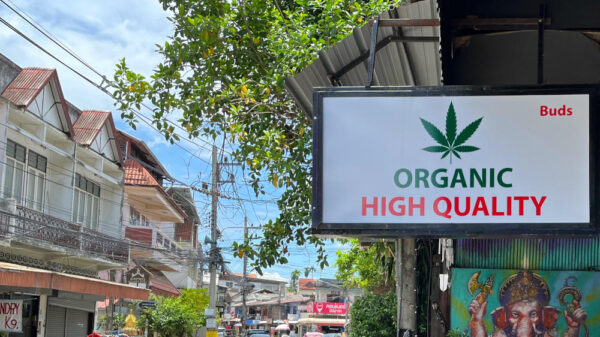One of the clear front runners in Canada’s premium cannabis category — Rubicon Organics, Inc. (CSE: ROMJ and OTCQX: ROMJF) — has one of the strongest market valuations among its peers as well.
Update: This article has been updated to include Desjardins’s latest notes, released Aug. 26, which increase its 12-month target for Rubicon to $4.50 and maintains a “Buy” rating.
As the Delta, B.C.-based producer’s sought-after Simply Bare brand hits the majority of shelves across the country, and begins to chip away at losses, it remains to be seen if Rubicon can generate enough revenues to turn a profit for its investors.
Read more: Rubicon Organics signs distribution deal for new premium weed, acquires new genetics
On Wenesday, the firm released its financial results for the second quarter 2020, ended June 30.
Rubicon reported quarterly gross revenue increasing to $1.2 million, from $0.5 million in the previous sequential quarter. The company earned $1 million in net revenue, a quarterly increase of 118 per cent — the increase attributed to higher sales volumes through all its distribution channels.
Simply Bare Organic has been a consumer favourite in Canada’s premium category. Press photo
Its stock price shed three cents Wednesday settling at $3.33 on the Canadian Securities Exchange, but has risen over 75 per cent from the beginning of the year. Rubicon has a market cap of $152.3 million.
Adjusted earnings before interest, taxes, depreciation and amortization came in at a loss of 2.5 million, compared to a reported $3 million loss in the previous quarter. Rubicon says the improvement is again due to revenue, as well as “relatively consistent” cash operating expenses.
The company reported a net loss $1.8 million, compared to a net loss of $3.8 million last quarter. The sequential improvement in profitability includes gains on changes in the fair value of the its cannabis assets, according to Rubicon. In April, the firm said it was strategically exiting the U.S. by selling its hybrid greenhouse facility in Washington, and intending to sell a three-acre land parcel in California.
Desjardins increases Rubicon’s 12-month target
In its first take of the second-quarter results, Desjardins said its takeaway was “neutral” in an initial note Wednesday. Rubicon’s sales and adjusted EBITDA loss beat forecasts of $0.9 million and negative $2.1 million respectively.
Reported gross margin of negative 120 per cent were in line with the negative 130 per cent analyst John Chu and research associate Amrit Sidhu expected.
However, selling, general and administrative expenses at 140 percent per cent of sales were much higher than anticipated. Desjardins would not be updating its rating or forecasts until it followed up with Rubicon for more colour on the results.
In a second note released later in the day, the financial services co-op updated its 12-month target to $4.50 from $4.00, raising it “as steady state production comes online.”
Given the as-expected second quarter results, Desjardins says its focus is turning to near-term outlook, where it expects significant sales growth and positive EBITDA by the end of the year.
“New supply agreements with Ontario and Alberta, along with the recent introduction of new strains of dried flower and pre-rolls, should all be key factors driving sales in the coming quarters, all of which should be supported by its facility reaching full cultivation utilization,” the second note reads. “Overall, we believe Rubicon is progressing as expected and we maintain our Buy rating.”
With new supply agreements in Canada’s two largest markets, Ontario and Alberta, Desjardins expects revenues to increase significantly in the third quarter and beyond. Cutting out-third party distribution in big provincial markets will drive Rubicon’s margins, which are expected to be even higher in Germany at $1–2 per gram — contingent upon pandemic-related uncertainties and travel restrictions for inspections.
In terms of product innovation, the note mentioned two new strains, in flower and pre-roll formats, launched in June. The pre-roll segment seems to be growing rapidly, and Rubicon plans to change its packaging to tins this fall for a more premium feel. Edibles and vapes should be on the way in the near-term, funded in part by the sale of its Washington facility. Larger flower formats and more 2.0 products are set for the first quarter of 2021.
As of Aug. 21, the analysis highlights, Simply Bare flower was priced at $15.99 per gram on the Ontario Cannabis Store, which only lists 30 super premium buds — 10.5 per cent of its total flower offerings. Rubicon intends to capture more market share in the super premium category with consistent product rollout, quality via the addition of LED lights at its Delta facility and sustainability via glass and tin packaging.
Desjardins’s sales forecast remains unchanged at $6.7 million, but its EBITDA estimate declines to negative $0.7 million due to a higher headcount, the cost of the new LED lights and expenses related to EU-GMP certification. Approximately $0.35 million has been spent on related capital expenditures as of Aug.26, with the analysis increasing its related capex estimates for the next two quarters by $3 million for the LEDs.
Modest tweaks were made to SG&A expenses, with Desjardins’s estimate increasing to $2.3 million in the third quarter, primarily due to more roles being added at Rubicon’s Delta facility, the LEDs and nominal costs related to the new outdoor pilot operations.
Desjardins says Rubicon’s stock performance was the second best, after TerrAscend Corp. (CSE: TER), among 50 cannabis corporations and five exchange-traded funds across various segments.
Read more: TerrAscend revenues rise as Pennsylvania market blooms
CEO Jesse McConnel says his company is well on track during this ramp-up phase in operations and has met internal expectations.
“We have established a solid platform for high quality production and we anticipate significant revenue growth in the upcoming quarters as we continue to build our product inventory and sell through our newly established provincial channels,” he said in a statement.
McConnel is the former co-founder of Whistler Medical Marijuana Corporation, which sold to Aurora for a reported $175 million early last year.
Operational highlights in the quarter include:
- cultivation reaching full capacity at its Delta facility;
- having eight SKUs on shelves across the country;
- being licensed by Health Canada for medical sales;
- being licensed by Health Canada to sell fresh and dried recreational products directly to all provincial and territorial distributors;
- signing direct supply agreements with the Alberta Gaming, Liquor & Cannabis, British Columbia Liquor Distribution Branch and the Ontario Cannabis Store;
- signing a three-year product supply agreement with German medical cannabis distributor Canacur GmbH, with its first shipment expected in the first half of 2021, pending EU-GMP certification;
- completing a private placement of common shares and common share purchase warrants for gross proceeds of $13.5 million, with proceeds to be used to optimize its Delta facility and to launch cannabis 2.0 products; and
- subsequent to quarter-end, receiving conditional approval to list on the TSX Venture Exchange.
Rubicon says it’s begun a pilot-scale outdoor harvest on its Delta property, and plans to launch sales in Quebec in the third quarter.
In an investor presentation in July, Rubicon said its founders and management hold 51 per cent of outstanding common shares.
Top photo of Rubicon’s hybrid greenhouse facility in Delta, B.C., via Rubicon
nick@mugglehead.com
@nick_laba












